A reflection from Fr. Rick Frechette on the situation in Haiti
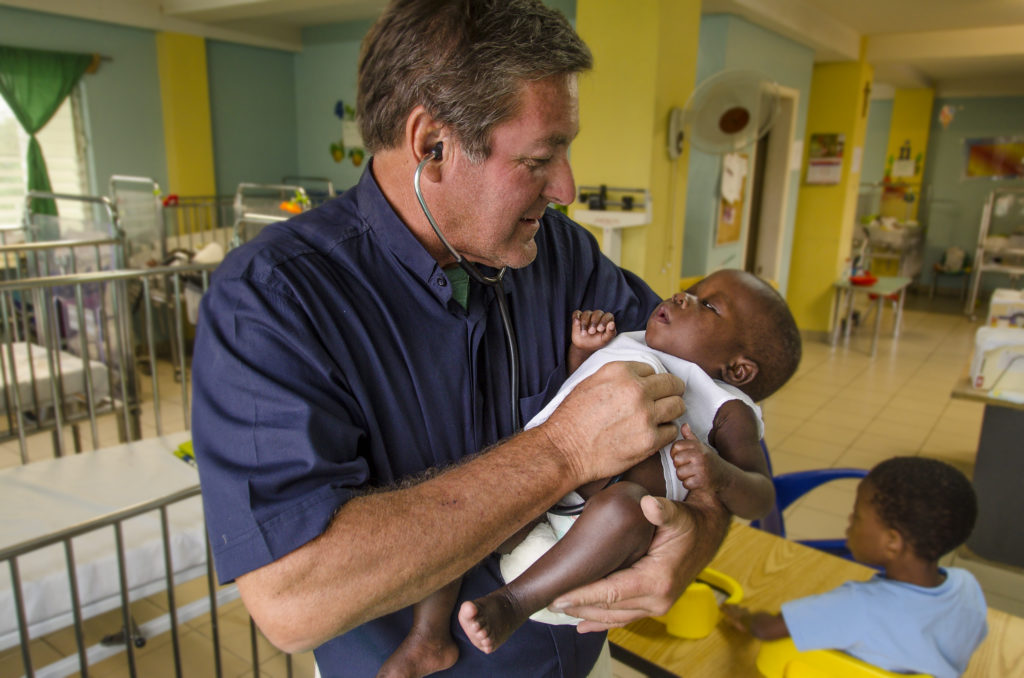
Dear Family and Friends,
When I get up every morning to the song of the earliest birds, I thank God for a safe passage through the night.
The prayer we learned before bed as children, “if I should die before I wake”, is much more sobering as the years fly by and accumulate fast.
After a quick check to be sure my body is still working, I thank God for the gift of health and the freedom it brings. I also thank God that I am free to determine what I will do in the day ahead.
As I head out the door, I enjoy watching the creole hens and their chicks, scratching around for the early worm. Seems like a carefree life, even in the face of danger: I have seen how the mother hen can send even the biggest rat running and screeching, if it has an eye on a fresh chick breakfast.
Freedom is a blessing. It fully feels like one.
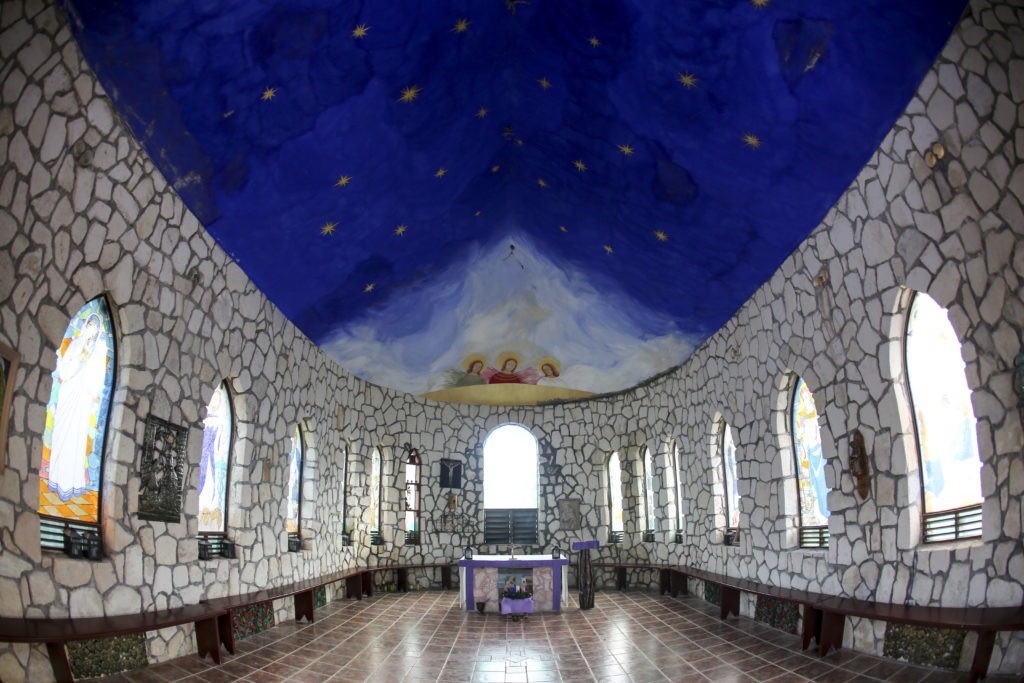
Yet sadly, too many people around the world do not know freedom.
They don’t start their day the way I start mine.
The new day for many brings the renewed darkness of bondage, not the kindly light of joy.
St. Paul the Apostle, while bringing the message of Jesus to Greece, spoke eloquently of God’s exalted vision of the human family, created in freedom for love.
His unforgettable words were spoken at a place that stood for the very opposite of love and freedom.
Known as the Areopagus (“the rock of Ares”), it had been for centuries the famed tribunal for murderers, since the time that Ares himself was tried there, by the gods, for brutally killing the son of Poseidon.
As Paul strove to express God’s closeness to this community, he drew on a phrase from one of their ancient poets: “In God we live, and move, and have our being.”
These are consoling words, especially spoken at the place famous for vindicating those who, quite to the contrary, were “killed, felled rigid in death, and robbed of their very selves.”
For how many people in Haiti – and around the world – are the circumstances of this new day the painful and tragic opposite of the life, freedom and fullness that God’s presence radiates?
Human suffering and bondage
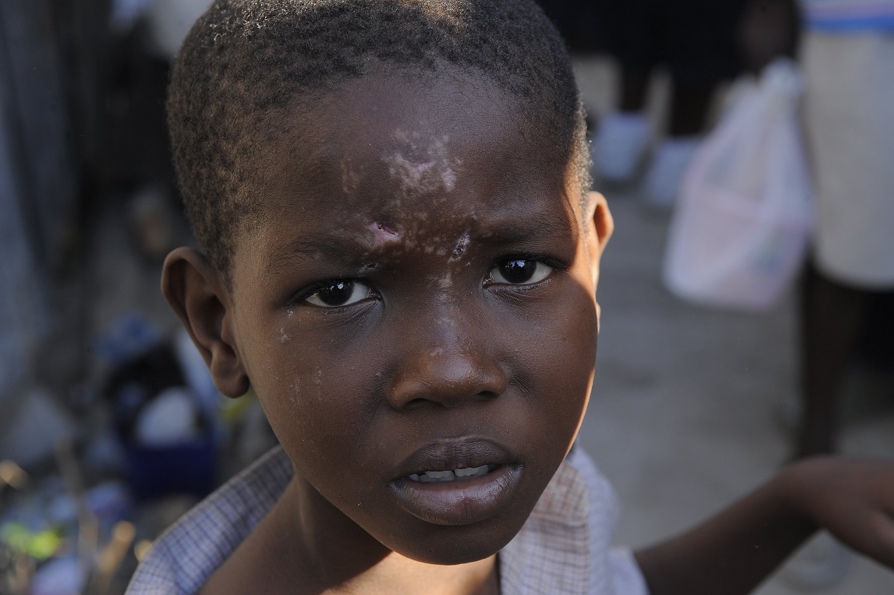
One has only to think of how massive the problem of human bondage is around the world.
And to think also of many other forms of bondage where the body is not taken, but is emptied of spirit, heart and dreams, and left terrorized.
Getting ready for Mass this morning, sipping our delicious home brewed coffee, one of the workers came to see me. He has been with us for 30 years and is deeply committed to our work.
With the new wave of kidnapping that we are presently enduring, Jean is quite anxious. He needed to speak again of what it was like for him when, on December 6, 2006 at 7:15pm, he was taken off the streets and hauled into an unknown vehicle.
He relives the nightmare again.
He was thrown under the seat, a booted foot pressed forcefully on his neck so he could not try to see, driven in disorienting circles, blindfolded, tied and gagged and dumped in a nearby scrubland.
For three days, no food or water, covered with fire ants by day and mosquitos by night, a daily visit from the thugs to beat him and remind him he would soon be dead if no ransom was paid.
It is painful for him to speak of his experience again. But he becomes anxious at the sight of every car with tinted windows, when people who look at him for too long, or even of seeing heavy boots.
I remember his kidnapping as if it were yesterday.
Raphael, Augusnel and I were the ones who secured his release.
Augusnel was led to the Tabarre bridge, over the Riviere Grise, to ransom him – a totally dangerous but life-saving act.
I had to do the same once, to save a five-year-old girl.
I shudder now even remembering the incident.
We were releasing so many kidnapped people at the time, that their physical release was the goal and focus, and then we moved on to another similar urgency.
We considered wrongly that the physical release was the happy ending of the story.
It is only now that we understand so clearly, that for many of the victims, they were never freed interiorly. Releasing them from captivity was not a happy ending, but rather the beginning of living out a long and terrible inner bondage.
I told Jean that I totally understood his reawakened anxiety.
I told him how important it is that he could speak about it, and how much I admire his overriding courage and goodness. And how well he has found a way to carry out his life and raise his children in the spite of this deep anxiety.
I left him soberly to walk to morning Mass, and I suddenly heard in stereo “Hey, blanc! Bonjou!”
“Hey, whitey (foreigner), good morning!”
Twin girls, all of five years old, were marching toward our clinic with their mom, flashing big grins, carefree.
I smiled, and asked God silently, to preserve their joy and freedom, in the (hopefully) long years that awaited them – a string of tomorrows in a really tough place.
When I reached the chapel, there was news of four young people kidnapped coming out of their church several days ago.
The story became more tragic, after the members of the church collected funds to pay their ransom.
A brave 28-year-old friend, and fellow worshipper, went to free them, and he himself was shot and killed by the kidnappers.
The kidnappers took the ransom money, and did not release his four friends.
On hearing this we were deeply pained, as you must be reading this, and we became very focused on our intention for our Mass: the release of the four young people, and to honor the memory of this young man, Jean Rubens Eugène, who should be proclaimed a national hero.
Blending voices to God
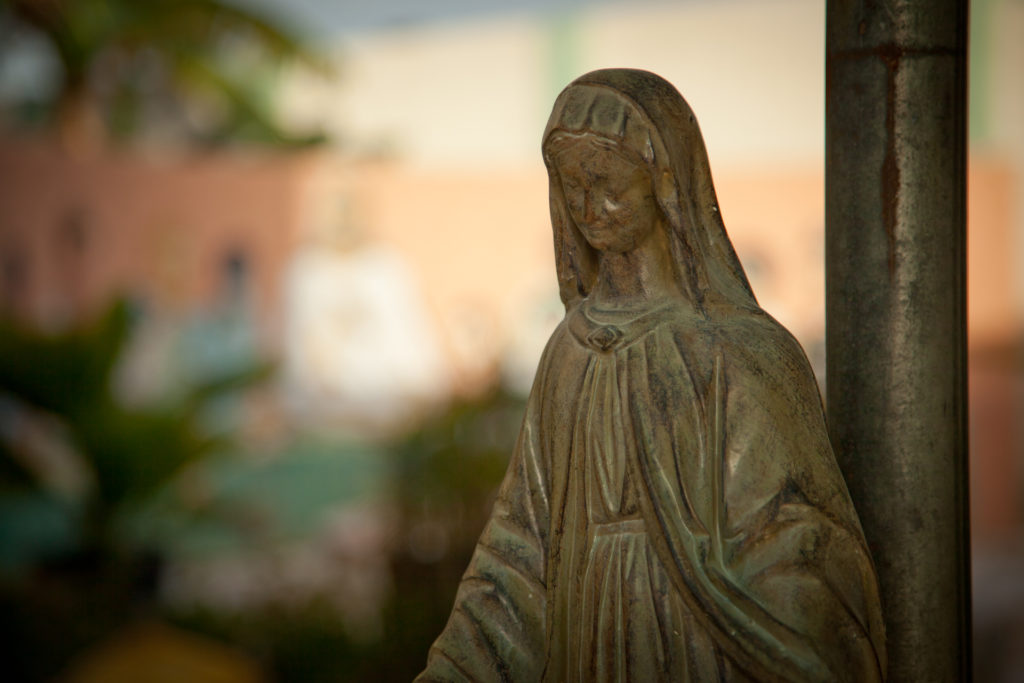
After a full day’s work, on returning to the hospital at night, there was singing. Beautiful singing.
Many mothers of sick children blended their voices in supplication to God, for healing for their children.
But one mother was on the floor, to the side, weeping.
I went to speak with her, and learned that her 11-year-old daughter, Taina, slipped into a coma at home, and was brought to us early morning.
I went to see Taina.
She looked just like her mom, especially her strong build.
She was in the sleep of coma, and a hissing machine was doing her labored breathing for her.
I wished I could just say “talitha qum” (little girl, get up!) like Jesus did, and return Taina to her mother, but I cannot.
How I wish I had that power.
My mind was racing to understand what happened (and what to do): cerebral malaria, sepsis from infection (burst appendix, perforated intestine from typhoid), encephalitis of viral origin, a burst brain aneurism.
I felt myself moving away from the sadness and anguish of this sudden and final separation between a loving mother and her daughter, taking protective refuge in the explanations and applications of science.
I did my best to encourage Taina’s mother, and then I lit candles in front of the icon of Mary, Mother of God.
(Surely, Mother Mary, you understand this and will help.)
My candles offered their rays of hope for three days and nights, but they burned totally out as Taina left this world.
Her mother, reaching for me as I blessed the body, sat lost on the floor.
I tried to console this woman who could not be consoled, because her daughter was no more.
The stealing of lives
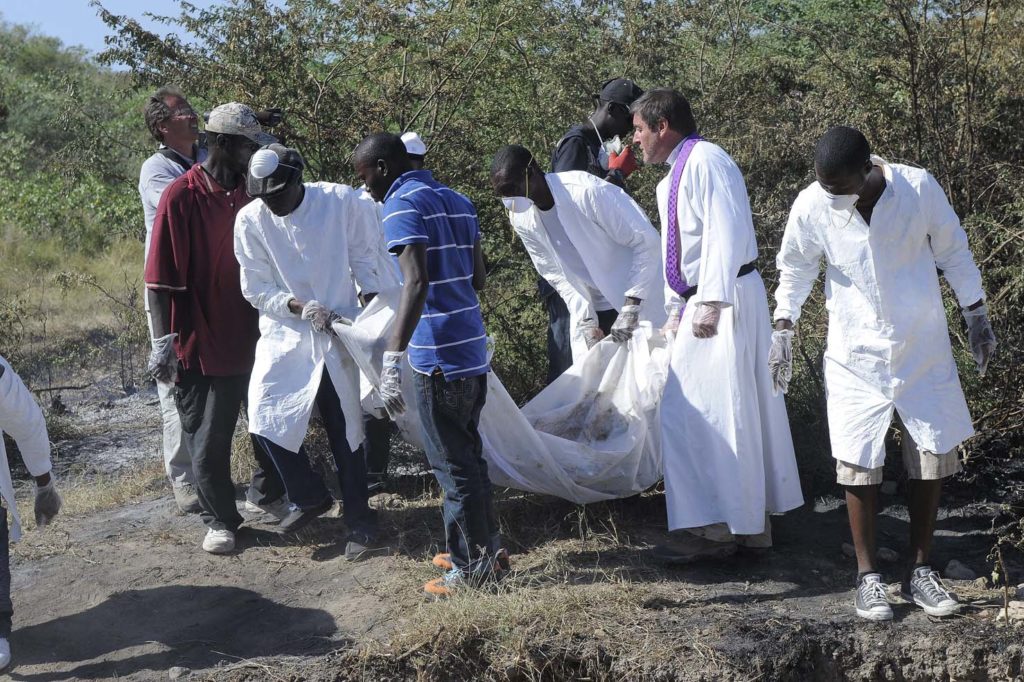
Literally, kidnapping means “nabbing a kid.”
The getaway vehicle was originally a burlap bag, or a knapsack.
Kidnapping involves the three crimes of stealing property (the victim), illegal transport of the property, and confining a person to a place, against their will.
The crimes increase if there is a hand laid on the victim, and increases even more depending on where the hand is laid.
It is totally criminal behavior, and of course, not just related to children. It has been a blight in many countries and across the ages. Even on the high seas.
Kidnapping in Haiti is part of a worldwide and age-old disgrace, the abomination of taking another human being into bondage.
But life also kidnaps people, leading them to enslavement against their will, throwing a sack of darkness and bondage over them.
It leaves them lost and disoriented, powerless and terrorized.
Think of Taina. Think of her mom. Sickness totally kidnapped both of them. Cruelly so.
Think of the middle age woman or man, whose life is turned upside down by the divorce they never saw coming.
Think of someone whose life was totally ruined by a drunk driver, or a patch of ice, or a surprise cancer.
Think of the many young people in the developed world who live on the brink of suicide.
Who stole their lives? How did they do it? Taking everything from them but a death wish.
Think of the whole country of Haiti, now in the 18th month of bondage, with everyone often enough a prisoner of their own home, their own neighborhood, because of the regular bedlam and brutality on the streets.
And certainly, prisoners of their deepening poverty.
In whose hands is this kidnapped country? Where is it being led against its will? What ransom can possibly be paid?
Can Haiti take much more?
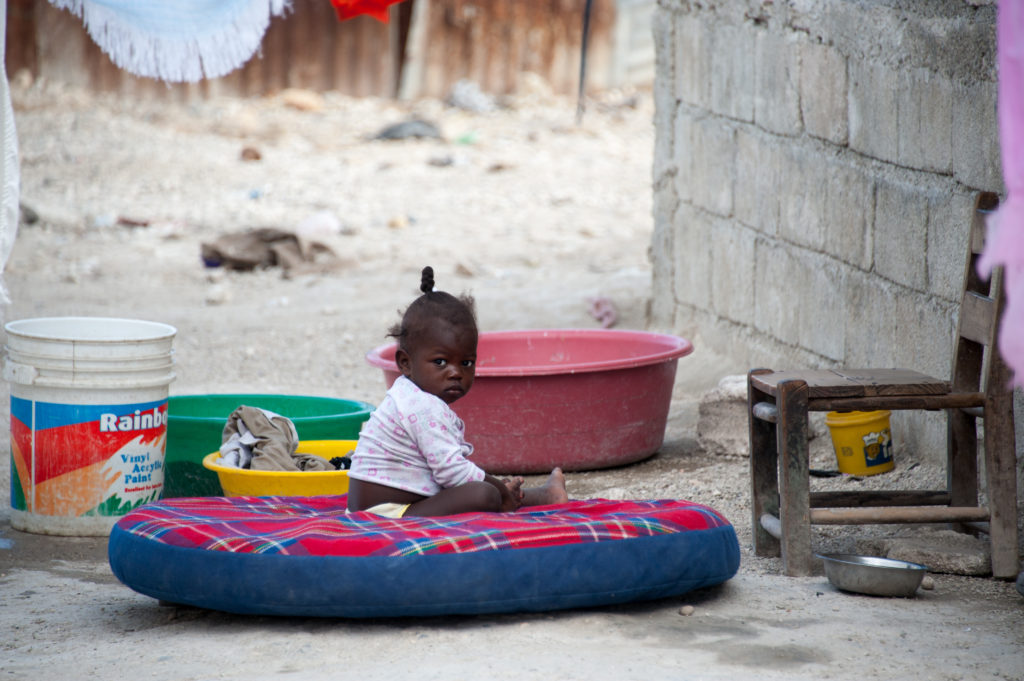
The past days, a faction of the police has been in open combat with the Haitian army, with many gangs taking the side of the police against the government.
We often can hear the gunfire. We often receive the wounded.
The bandits have been stealing cars, trucks, containers, and using them to block the roads. Then they steal the keys, and often enough the driver.
Our children’s home truck became one such roadblock recently, when all roads were blocked from the airport road all the way to where we reside in Tabarre, and then all the way to Delmas.
Is a civil war starting? Can this nation, already tottering on the brink of falling apart as measured by all life indicators, really withstand a civil war?
A journalist asked me recently how the people of Haiti find the strength to keep going.
I think a good answer is, the only alternatives are to keep going or to die.
This is a very practical answer. None of us are ready just to roll over dead. In fact, far from it.
For sure people are exhausted and discouraged from trying and trying for a better life, when everything they are able to do against all odds gets undone, stolen or destroyed.
The very fact that we get frustrated and discouraged is because we know so clearly that the things we are living and seeing are so wrong, so despicable, and that life could and should be so much better than this.
Our suffering shows how deeply “what is right” is engrained in us.
The challenge is to preserve this deep sense of right, and the courage to strive for it.
Refusing to let the sun set on our sense of right, becomes the way to preserve inner freedom.
We know the price that must be paid, over and over again, to do this.
40 days of lengthening light
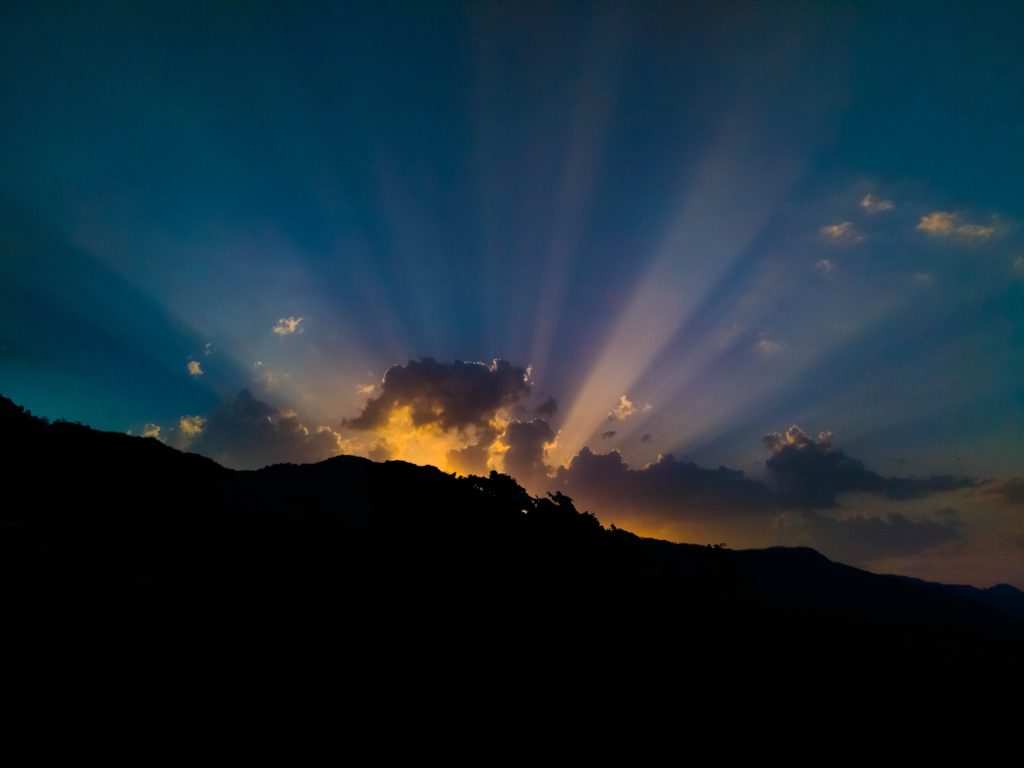
In Christian belief, Jesus in both Savior and Redeemer. His life and death were a ransom payment. It’s the very word used in theology: ransom.
Savior refers to restoring freedom, and redeemer refers to the steep price paid to save.
These 40 lengthening days of Lent unfold for us the story of how Jesus paid the final ransom for us, and show us clearly what our ransom cost. Nothing short of the suffering and death of God.
For Christians, with his blood, he bought our way out of evil and out of death.
He banished the boast of sin and grave.
Jesus bought for us the way out. But we have to choose to follow the way.
It is not handed to us on a silver platter.
The good news it there are precise rules to redemption.
The bad news is there is nothing easy about them.
The first rule is to pray.
From a quieted inner place of solitude.
Your own words are best, no clever Latin substitutes.
Nothing with off-the-shelf overtones.
Praise God’s greatness, thank God’s goodness, humble yourself before God, beg God’s forgiveness for messing everything up often, pray for those in need, start with prayers for your enemies.
And finally ask God for what you need at this moment.
The second rule is to act: you must clearly know that prayer is not enough.
Prayer without action is, according to St. Paul, dead on arrival at God’s ears.
There have to be works. Good works. Generous works. Sacrificial works.
The good works also need to bring benefit to our enemies.
This is quite central to the plan, that we are willing to anguish and suffer to help an enemy.
In this way, which is the teaching of the ages, we “keep going,” with our minds and hearts fully fixed on what we know is right.
For the non-believer, and for people of other and diverse faiths, the formula still applies. Building inner vision and stamina, and making us the kind of people that can lead humanity to a much more humane future.
Sorry if this is long. I think news about Haiti is rare. Sorry of it sounds like a sermon, but I am a priest and it is Lent.
Life is great except for the horrible parts. And we count on Divine help to be able to bear them.
We are working these very days closely with the Ministry of Health to make our hospitals and clinics part of the national system of preparedness as the coronavirus gets closer. We are working on the isolation areas now.
Coronavirus – a kidnapper by another name.
We pray especially for the people of China, Italy, Iran, Japan and the USA who are already tragically affected.
Let us face this new year with courage and optimism, despite its overwhelming challenges.
Pray for us, as we do for you.
We also thank God for you, for the many ways that we are close: financial, friendship, and in prayer.
Many blessings during these holy 40 days of lengthening light.
Fr. Rick Frechette CP, DO
Port-au-Prince
February 29, 2020
